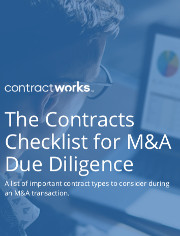Goldman Sachs, Dell Settle Pay Bias Allegations for Millions
Goldman Sachs and Dell Technologies will pay a combination of almost $17 million to settle separate Labor Department allegations of pay bias based on gender and race, reports Bloomberg Law.
“Both Goldman Sachs and Dell-EMC agreed to nationwide ‘early resolution’ agreements, whereby their compliance will be routinely monitored in exchange for five years free of random OFCCP audits,” explains Bloomberg’s Paige Smith. “These are at least the fourth and fifth ‘early resolution’ agreements with the agency, joining those with Bank of America, Performance Food Group, Cintas Corp., and US Foods Inc. ”
Read the Bloomberg Law article.



